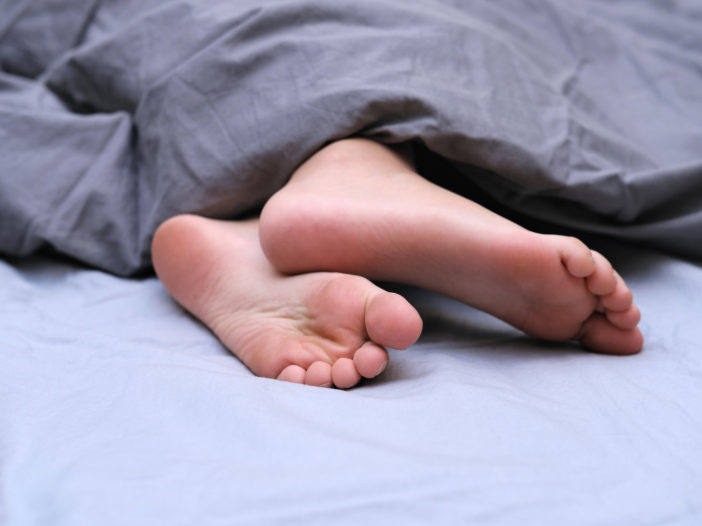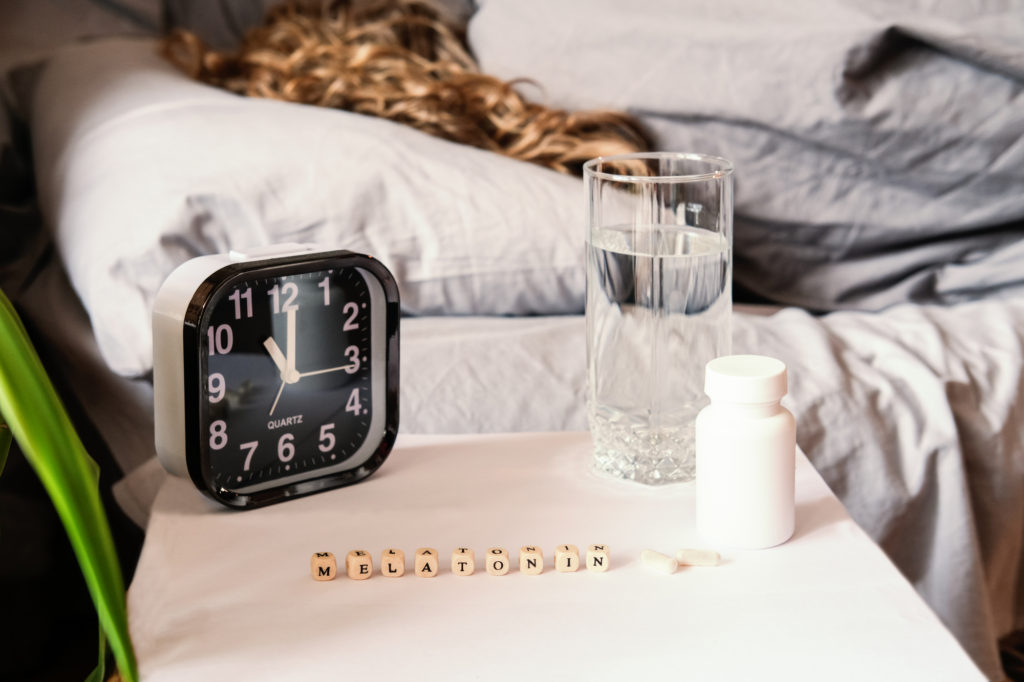
All the hard work that you have done so far will be wasted without a commitment to adopting good sleep practices. And getting good quality sleep can be incredibly powerful for your menopause transition and help to reduce symptoms.
For me, it’s just as important as eating a healthy diet and exercising in the right way. It is basically the foundation of good health. Although you may think of it as a time when the body shuts down so you can rest, the opposite is happening.
It is the time when you:
Replenish your cells
Rebuild your tissues
Release essential hormones
Detoxify and get rid of waste products
Reclaim your energy so you wake feeling refreshed.
Would you like to get rid of your brain fog and fatigue for good?
The most common symptoms that peri/menopausal women experience are fatigue, weight gain and brain fog. And poor disturbed sleep is an important factor contributing to these symptoms.
Without good quality sleep, your menopause symptoms worsen as hormones start to wreak havoc on your body.
Let’s take a look at some common peri/menopausal symptoms and the impact of poor sleep
Fatigue and weight gain
· Your appetite is controlled by hormones and if you do not get enough sleep, these become unbalanced. This can lead to cravings for unhealthy foods.
· Short sleepers generally consume up to 500 calories more than those that get 7 hours each night. This is because the hormones that control hunger and satiety (Ghrelin and Leptin) are out of sync when you are tired and make you feel much hungrier.
· If your leptin levels are too low, your thyroid slows down, your metabolism becomes sluggish and you store more fat and suffer from fatigue.
· If you can’t sleep, you become stressed. Stress releases the hormone cortisol which keeps you awake. A vicious circle begins!
· When you lack sleep over a prolonged period of time, you may lose the ability to regulate your stress hormone, cortisol. This in turn can lead to high blood pressure.
Poor memory, concentration and brain fog
· If you are not getting enough sleep, you will struggle with your memory and concentration.
· You may also find it hard to focus, make good decisions and experience brain fog. This is because, whilst you are asleep, you retain and catalogue memories and learnings as well as restore energy.
· Whilst falling oestrogen levels are the main cause of brain fog, not getting enough sleep does not help. Poor sleep will impact your memory, ability to pick up new things and retrieve things that you have learned
So, how can you get good sleep during your peri/menopause?
1. Keep your circadian rhythm healthy by increasing exposure to bright lights during the day
Our bodies have a natural clock known as our circadian rhythm and this affects your brain, body and hormones. If you struggle with insomnia, increasing daily light exposure will help with day -time energy levels and night -time sleep quality.

2. Reduce blue light exposure in the evenings
Using electronic devices like smartphones and computers and watching TV before bed- time, tricks your body into thinking that it is day- time.
Blue light impacts your circadian rhythm and reduces the production of melatonin which you need to relax and sleep.
Try and turn off bright lights and stop using devices 2 hours before bed- time. If this is not possible, you can wear glasses that block blue light or install an app on your smart phone to block it
3. Don’t drink alcohol
Although you may think that alcohol helps you to relax and sleep, it actually has the opposite effect and can reduce the production of melatonin. It causes sleep patterns to be disrupted. You may find that you wake up at 3am – signs that you are dehydrated, your liver is in overdrive and your blood sugars are low
4. Limit caffeine
As a stimulant, caffeine will just keep you awake. Try a calming herbal tea such as chamomile instead.
5. Make sure that you are well hydrated.
If you are dehydrated, the stress hormone cortisol will be stimulated and wake you up.
6. Try some form of relaxation before bed.
Find a routine that works for you. Many people benefit from a warm relaxing bath or deep breathing exercises to help their bodies to relax. Or maybe listen to some relaxing music or read a book. There are also mindfulness apps like Headspace that can help
Would you like to learn about foods that support good qaulity sleep?
7. Think about what you eat.
Avoid refined carbohydrates (white bread, pasta, cakes and pastries). These will send your body on a blood sugar roller coaster and keep you awake at night.
By adopting these practices, you will start to see some great improvements in the quality of your sleep. And this is so important for your end goal of a happy and symptom free life.
For many people, sleep becomes more difficult as you get older. There are a number of reasons for this.
And you’ve guessed it – an imbalance in hormones is at the heart of the problem
Melatonin and cortisol are invaluable hormones for sleep as they control your circadian rhythm. When functioning properly, melatonin rises in the evening to prepare you for sleep. At the same time, cortisol levels drop so that your body can relax and sleep. Cortisol will then increase in the morning to get you going for the day.
Cortisol and Melatonin have very different roles in determining your circadian rhythm and your quality of sleep

Melatonin is a hormone produced by your pineal gland in your brain. In essence it tells your body when it is time to go to sleep. Melatonin levels start to rise when you have been awake for 14-16 hours. It continues to rise from this point and peaks around 3 am. It then starts to decrease and is very low when you wake up.
In contrast, cortisol is produced by your adrenal glands. You have already seen the role which it plays in your flight and flight response. But it also has an important role in controlling your sleep/wake cycle.
Cortisol starts secreting in the morning when it is time to wake up. It continues to rise during the day, keeping you full of energy. And then it falls in the evening when melatonin starts to rise.
So, it is easy to see that the interaction between these hormones is complex. When they do not work together in balance, your may not get good quality sleep and your menopause symptoms may well become exacerbated.
Good sleep equals reduced menopause symptoms!
Hence the reason it is important to adopt good sleep hygiene practices in order to keep these hormones working effectively and those symptoms at bay.
Click through to my download to find out more about how to have a happy and healthy menopause

